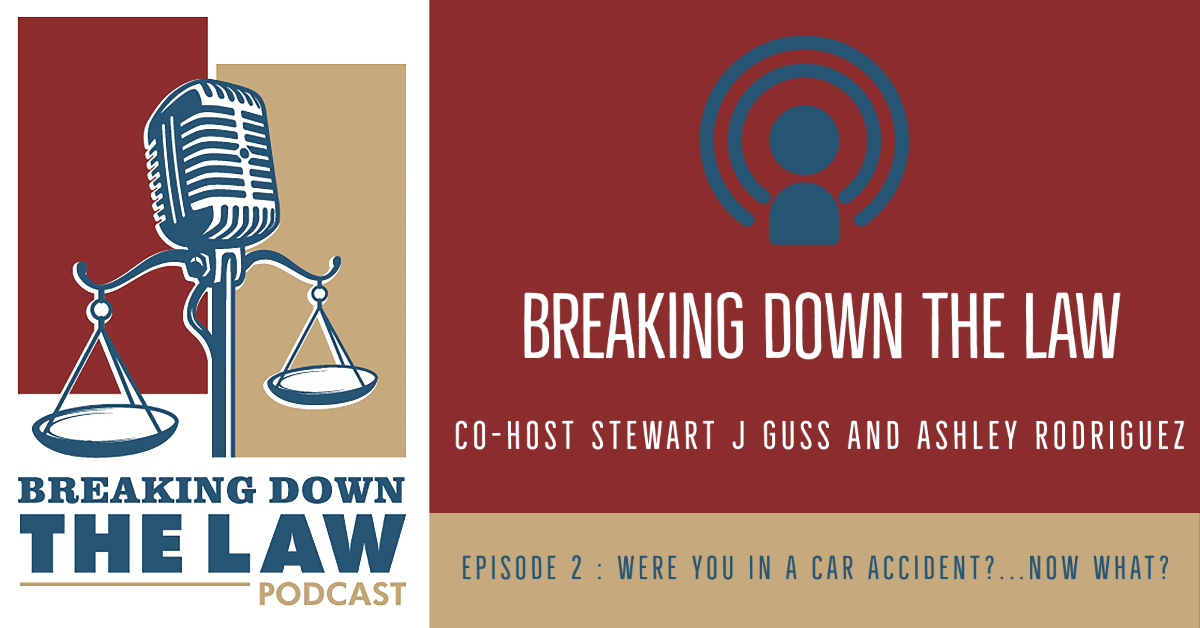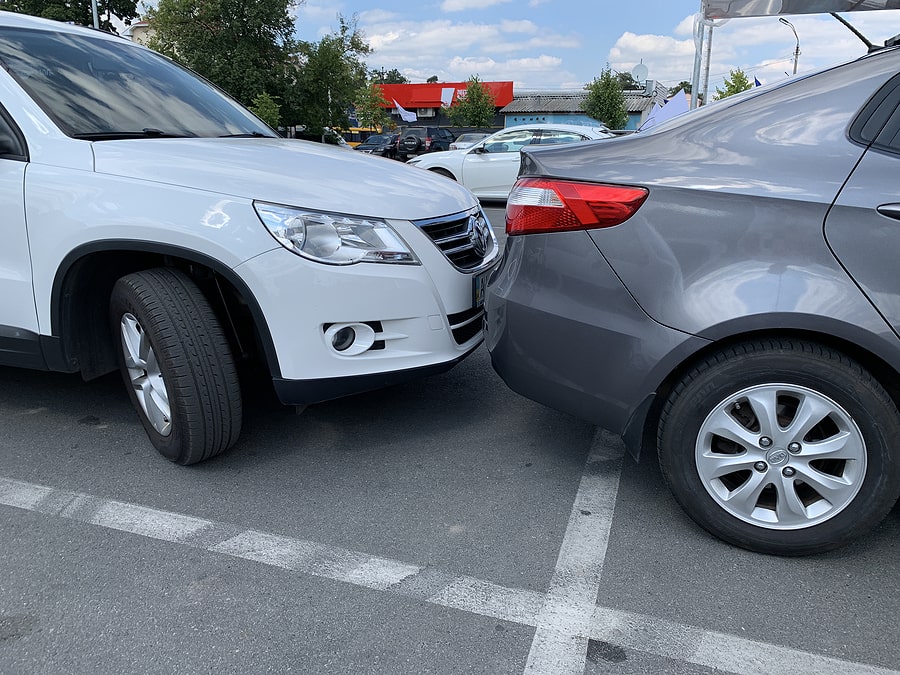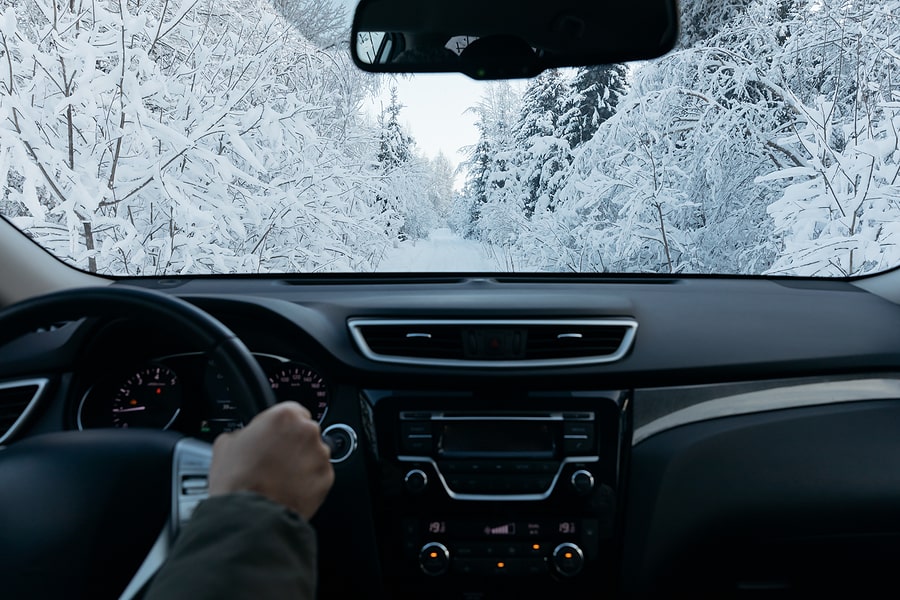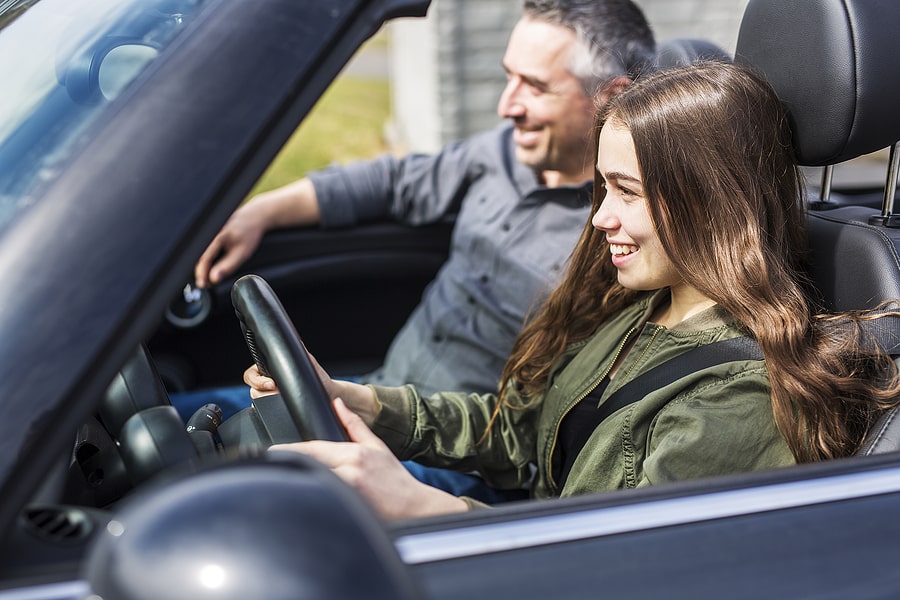For this episode of the Breaking Down The Law Podcast we’re joined by Stewart J. Guss, a personal injury lawyer in Houston who specializes in car accidents resulting in injury. He’s joined by Breaking Down The Law Podcast host, Ashley Rodriguez.
During today’s episode we’ll be addressing a question we hear all too often, “What should I do after I’m involved in a car accident?” While it might seem straightforward, many drivers don’t realize they could be making mistakes immediately following a car accident that could actually hurt their case. Some examples include:
- If you’re in a minor car accident and no one is severely injured, pull over to a safe area to avoid creating a larger accident while you’re figuring out your next steps.
- Don’t argue or yell with the other party (or the Police, ever). Don’t assume or place blame. So long as there is more than a few hundred dollars of damages, call the authorities. Let the authorities do their job and keep quiet while being cordial and expressing compassion by making sure they don’t need emergency assistance.
- While you’re waiting for authorities, exchange basic pertinent information, such as proof of insurance, Driver’s License information, contact information, and so on. At this time, so long as it’s safe to do so, you can take pictures of the scene of the accident, I’d just encourage you to not film the other party, which can flare up emotions.
- Don’t assume that intersection or private CCTV footage will be made available to you, so you should document the accident in a courteous and safe manner.
- If the accident causes significant damages to your vehicle or injuries are present, you should really consider calling a personal injury lawyer before you speak with any insurance adjusters, law enforcement, and so on. Remember, insurance companies don’t want to make pay-outs and law enforcement might not have all the accurate facts at the time of their reporting. Your lawyer is your advocate and consultations for personal injury cases are almost always complimentary.
Stay tuned for the next installment of the Breaking Down The Law Podcast with Stewart J Guss and Ashley Rodriguez! Contact Us: 281-783-3934 or [email protected]
If you want to subscribe to our podcasts on your favorite podcasts player click here for all the links to each one!
Transcript [This transcript was created using an automated transcription service and may contain errors]
Intro : 0:09
breaking down the learning gap below a podcast hosted by attorneys and legal specialists discussing everyday law and how it affects regular people, regular people. Let’s break down the law with our host, Stuart Gus and Ashley Rodriguez. They have the inside scoop on everything legal and newsworthy.
Ashley Rodriguez : 0:34
Hello, I’m Ashley
Stewart J Guss : 0:36
and I am Stewart. Welcome to our podcast breaking down the law. today’s podcast episode is one that is very, very unique and distinctive and relevant to my practice. You’re driving down the road, you’re not expecting this and then out of nowhere. You’re in a car accident. So what do you do?
Ashley Rodriguez : 1:03
Yeah, so I’m Stewart I was just in a car accident. I’ve never been through this before, what is the first thing I should do?
Stewart J Guss : 1:11
One of the most important things that you can do when you’re a car wreck and just keep in mind the advice that I’m giving today, it’s general advice. It’s not legal advice. I can’t give anyone specific legal advice unless of until me or one of my attorneys is actually sitting down meeting with them. And we’ve been formally retained to do so. So what I’m giving is sort of general tips. Again, going with the idea of what we’re trying to do with this podcast prepare you for what you’re not prepared for prepare you for the unexpected. So if you’re in a wreck, you know, the first thing that I would recommend that you do and fellow commuters and drivers would as well, if it’s a relatively minor accident, there is some controversy about this and some lawyers may feel differently. I think you ought to pull over someplace that’s safe where you’re not blocking traffic because the problem is if you stay where you are, you might Cause you know for because of a minor accident you might cause a bigger one and besides which this is Houston and you don’t want to have be flipped off and have you know and then people start people start throwing people start throwing beer cans at you as they drove by and then the next thing you know it’s in such chaos you’re looking for Okay, not that people in Houston have that accent but you get you get my point. Yeah, so move out of the way if you can if it’s safe and if you’re not obviously significantly injured. Yeah, let’s let’s keep it safe for the other drivers and hate the flow of traffic.
Ashley Rodriguez : 2:42
So should I figure out who’s at fault next are called the police.
Stewart J Guss : 2:46
It’s not your job to figure out who’s at fault. It’s your job to cooperate with the police when they show up thing that I want to really clear about this is that the health and safety of the people involved in the car accident app salutely has to be of paramount importance. And if and if there’s any possibility that anyone has any significant injuries, you absolutely need to call 911 and get medical dispatch out there ASAP. And it doesn’t matter if it’s you or the other driver or a passenger. So so let’s put that out front. You know, interesting Lee, probably 80% of the collisions that occur in Harris County on a given day, don’t necessarily involve catastrophic injuries. They still may involve injuries, but they may not involve injuries that are considered life threatening,
Ashley Rodriguez : 3:37
so they don’t necessarily need an ambulance right away.
Stewart J Guss : 3:40
Yeah. Although to be honest with you, you know, I think that typically speaking, it’s getting back to your question, should I figure out who’s at fault. So bottom line at the end of the day, at the end of the day, unless you are a law enforcement officer and B, it’s not your job to do that, but you obviously want to make sure that If there’s any question about injuries or property damage more than, you know, a few hundred dollars, very good idea to call the police come out, let them do their job, not your job to figure out who’s at fault, but it is your job to cooperate with the police. When they investigate, be honest with them, be friendly. Don’t argue with them. It’s not going to help, trust me, and then let them do their job. They’ll document it. They’ll talk to the parties involved and create a police report. That police report is very important, of course, because it can it you know, it’s going to provide one of the, you know, main pieces of evidence in terms of determining liability. But here’s the deal. Nine times out of 1099 times out of 100 when you you know my best advice I can give you if you are arguing at the scene of a car accident with a police officer you’ve already lost.
Ashley Rodriguez : 4:54
So you recommend even in a minor accident where we moved out of the way that we should still go ahead and call a police officer
Stewart J Guss : 5:00
Yeah, if it doesn’t involve catastrophic injuries, it may take a while for them to get out there. But it’s really, you know, again, there is some what I’m trying to give a sort of practical advice. So if you’re going to ask me, excuse me, Is that legal? I don’t necessarily know that I can answer that question for you right away. I’m just telling you, you know, where the rubber hits the road so to speak. You really want to sit and wait for the cop to come up. Let the police officer investigate. Tell your side of the story. Do not admit fault. You know, it’s okay to explain the facts of what happened. don’t admit fault and be careful about what you say because, you know, they say what you say can and will be used against you. It’s it’s true because if you mentioned to the to the police officer, well, I just looked down for a minute. That’s gonna show up in the police report, and it’s going to make it very difficult for you to win your case. Don’t ever, ever lie. Absolutely. 100% always tell the truth, but you know, don’t be a volunteer. Don’t Go into unnecessary detail
Ashley Rodriguez : 6:03
so that I talk to the other person in the accident or wait for the police before I talk to them.
Stewart J Guss : 6:08
Yeah, no, it’s a good idea to go ahead and speak to the other person, you know, quite frankly, setting aside the issue of liability and some sort of a, you know, injury claim. You one thing you want to find out right away, Hey, are you are you hurt? Do I need to call an ambulance for you because remember, sometimes you’re not necessarily going to see blood or obvious physical damage. There could be a lot of ways someone is hurt, or maybe they’ve got chest pains or other symptoms. So not necessarily as a matter of legal but as a matter of being a decent human being see if they’re hurt and and if they are, you know, another reason to call 911 to make sure you get medical dispatch out there. But going back to your question, and I know I tend to run circles, you asked me one question I asked set I answer seven other questions and then I Come back and I answer. Yes. So should I talk to the other person about the accident? Yeah, but let’s do this. Let’s just go ahead and limit it to the exchange of information, insurance policy information, driver’s license information, contact information. Just like you don’t want to argue with the police officer about the facts of what just happened. You certainly don’t want to argue with the other side as well. So be human check for injuries, be responsible exchange information. And then at that point, you know, just let the let the police do their job.
Ashley Rodriguez : 7:36
Do you recommend like at that point, while I’m waiting for the police that I should take photos of the accident? Or video maybe photos of the driver’s license or insurance just in case I wrote it down wrong?
Stewart J Guss : 7:47
Yes, yes, yes, yes, maybe. Yes, you should take photos of the it’s sometimes not a great idea to take a picture of the driver that actually for For some reason, couldn’t really set people off and then they get crazy and then you’re stuck with the British guy screaming. Yeah, not a good idea to personally irritate someone by taking their photo. But if it is safe to do so, and I’m going to underline that highlight it, I italicize and then go back and repeat it. If and only if it is safe to do so absolutely take pictures of the property damage the positioning of the vehicles. So you want to go back and take pictures of the position of the cars, you know, skid marks debris surrounding area. Go ahead and take those pictures because sometimes it may be the only chance that that you have to get that information. That documentation. A lot of people think that those traffic accident cameras are there to record their accidents so they can get in and call the other person a liar as they are tell stories about what happened. But unfortunately for a number of reasons, it is, as a practical matter extraordinarily difficult to ever get those recordings. If I’m allowed to go off on a another little tangent here, excuse me, Is that legal? It is because it has to do with a time where I actually got evidence from a building’s security system. I had one situation where my client was a passenger in a vehicle being driven by someone that was DWI. And over the limit. There was an argument about liability. We weren’t my investigator, my investigative staff, were able to go back and find a video from an adjoining building showing the events of that evening. It’s not totally common that we can do it and you don’t want to rely upon it. We will when we can, obviously. So long story short, again, 17 minutes to answer a one minute question. Yeah. Take Take pictures of it safe
Ashley Rodriguez : 10:01
So do you think videos better or pictures if you could only take one
Stewart J Guss : 10:05
video can be helpful if you have something that’s that’s moving. That’s, you know, or if you want to do a 360 video just to show the scene. When I was a kid, you had film and a camera you had like 34 pictures. And then you didn’t get to see how they came out until like weeks later when the lab sends you your your pictures back. But this was back in the dark days when I was still taking notes in law school with a chisel and right and Caveman’s. Exactly, exactly. So now you know you can take as many pictures as you want. You can look them right then in there. There’s no harm in taking too many pictures. Again, just be reasonable. be conscientious about the safety of yourself, your passengers.
Ashley Rodriguez : 10:48
Alright, so did all that the police came, got their records, took the pictures, and I feel fine. So should I just go back to work and get on with my day or is there something else I should do?
Stewart J Guss : 11:00
That’s sort of a trick question because I will tell you, you know, I think we’ve talked about the fact that no one puts on their pants in the morning expecting or skirt expecting to be in a car accident. What happens when you’re in a car accident, it is the epitome of an unplanned event. And going back to we talked about I would chisel my notes caveman style. Well going back to our caveman roots. When we are in a situation like a car accident, our fight or flight instincts kick in and we get an enormous dump of adrenaline into our systems. What happens is that adrenaline can sit there for hours and actually mask injuries that may not be obvious to you at front. My personal advice again, this is not legal advice, but you know if you were my daughter or or my sister or friend, I’d say Go get yourself checked out. If you’re hurt. Obviously you need to get to an ER or paramedics come up to you and they want to transport you you’re that injured. Don’t argue with Just getting the dang ambulance. But even if you’re not catastrophic Lee injured I think it’s always a good idea, in my opinion to get yourself checked out. Because there are injuries and symptoms that really may not manifest themselves either because the mechanism of the injury or because you are absolutely flooded with adrenaline, they may not show up for hours or you know, sometimes even a couple of days after the wreck
Ashley Rodriguez : 12:25
and be safe than sorry,
Stewart J Guss : 12:27
I was gonna say dust like my Jewish mother, sir. Chicken Soup serving put on a sweater Jewish mother would say, better safe than sorry, Stewart, you’ve got to take care yourself.
Ashley Rodriguez : 12:39
Yes, cars damage. I’m hurt. I have to miss work. I don’t have a way to work. What is the next step? What do I do?
Stewart J Guss : 12:48
Alright, folks, you were expecting this. It’s a slow pitch over homeplate and I’m gonna knock it out of the park. Here’s the deal. talk to a lawyer. If you want to call my firm, call my firm. If you know, another personal injury lawyer that you have relationship you just call them. The good news is there are a lot of really good personal injury lawyers in Houston and in Texas and around the country. I’m one of them. But there are others. If you want to call us to get some advice we are happy to. I should be clear, not legal advice. But at least an evaluation. If you want to call us go over the facts of your case, get an evaluation, we can do that for you. In fact, we can do that free of charge 24/7, so a slow pitch over homeplate and I’m going to knock this one out of the park. You got to consult with a lawyer. We’re happy to talk to you. We’re open 20 473 65 you’re welcome to call my law firm at 1-800-898-4877. That’s one 800 898 Guss g u s s, but to be honest with you, there are great law firms all over the country that do personal injury law if you if you know someone if you feel confident at someone, find an attorney to give you advice about what your rights are and how to protect those rights. There are so many things that can go wrong right after a car accident and so many parties out there that are ready to lay a tiger trap for you. So I would highly encourage not only do you get with an attorney to protect your rights, I would say that you need to do that ASAP before you start talking to insurance adjusters because they can be a tricky little breed, they will be ready to like I said, lay a trap for you. Have you fall in it and then before you know it in a situation where you would otherwise have the right to a possibly substantial recovery for your injuries, your lost wages, etc. You may find yourself out of luck or at least unnecessarily fighting a significantly uphill battle.
Ashley Rodriguez : 14:57
Yeah. So the bottom line is It’s free case evaluation. See if you have a case, figure out your next steps. And then you can either go on from there or then call your insurance at that point.
Stewart J Guss : 15:10
Yes, absolutely. I think that’s the case. I think before we wrap up the show, I’m trying to introduce one good lawyer joke every single time. And since we’ve talked about the old days, where you chisel stuff, taking notes with hammer and chisel and so let’s go back far, far back to the days where he didn’t have any even have telephones where most communications across country were done. Via Telegraph, there’s a great story about a lawyer who is fighting a lawsuit on one coast Telegraph’s to his client on the other coast. Wow, we have completed the trial. And justice has triumphed. And then the client of course immediately Telegraph’s back appeal immediately. All right, that’s the best I can do. on such short notice, other than that you got anything else.
Ashley Rodriguez : 16:04
Now that’s all I have.
Stewart J Guss : 16:06
All right, well, thanks so much for listening to another episode of breaking down the law and we’re looking forward to visiting with you guys again





